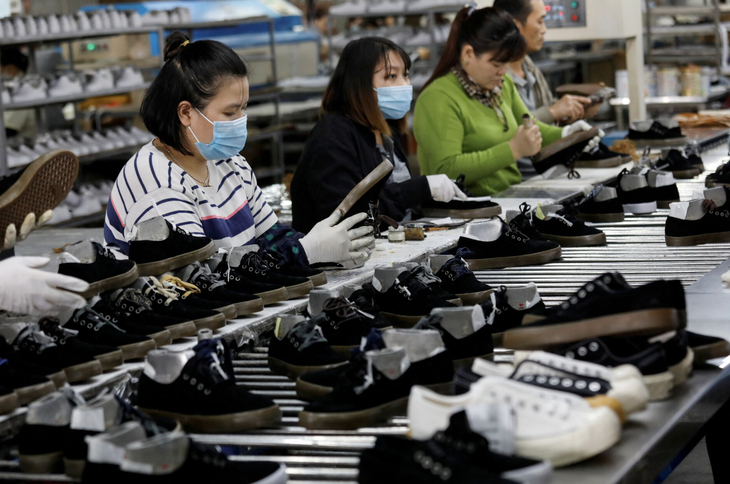
Vietnamese workers work in a factory in Hanoi - Photo: REUTERS
Since the Vietnam - EU Free Trade Agreement (EVFTA) took effect in August 2020, after 5 years, this agreement has been a catalyst for trade between Vietnam and the region to increase sharply, contributing to strongly promoting bilateral trade turnover, reaching nearly 300 billion USD, equivalent to nearly 40% of the total accumulated trade value between the two sides over the past three decades.
Vietnam is currently the EU's leading trading partner in ASEAN and the 16th largest partner in the world . According to the European Chamber of Commerce in Vietnam (EuroCham), the EVFTA thus becomes a model of cooperation based on rules, common values and a long-term development vision, in the context of global instability.
Accounts for nearly 40% of total trade turnover over three decades with the EU
The EVFTA is one of the most comprehensive and ambitious free trade agreements the EU has ever signed with a developing country. The agreement eliminates more than 70% of tariffs on many imports and exports, with the remaining 99% to be gradually eliminated over time.
“In a context of increasing geopolitical uncertainty and repeated unilateral tariff declarations, the EVFTA stands out as a symbol of trust and cooperation,” said Bruno Jaspaert, Chairman of EuroCham.
The EVFTA is also a catalyst for long-term harmony in values and standards between Vietnam and the EU.
According to preliminary data from the General Statistics Office of Vietnam, in less than 5 years, from August 2020 to May 2025, bilateral trade turnover reached 298 billion USD.
This figure accounts for nearly 40% of the total accumulated trade turnover between the two sides (815 billion USD) in more than 30 years of trade cooperation since 1995.
Exports to Europe range from electronics, textiles, furniture to agricultural products. In turn, the EU is Vietnam’s third-largest export market and fourth-largest source of imports, supplying strategic products such as high-tech machinery, transport vehicles, pharmaceuticals and green technology.
EuroCham said the EVFTA has helped Vietnam position itself as a reliable manufacturing and export hub in the context of increasingly fragmented global supply chains.
To exploit EVFTA effectively
However, businesses wanting to take advantage of the EVFTA still face major challenges with complex implementation mechanisms and administrative barriers.
According to EuroCham’s latest Business Confidence Index (BCI) survey, 37% of businesses said they regularly encountered discrepancies in customs valuations, which increased costs and reduced competitiveness.
EuroCham pointed out that unclear regulations, lack of uniform enforcement, and inconsistencies between authorities in both the EU and Vietnam continue to hinder trade.
“As a business owner and having supported many other investors to ‘settle down’ in Vietnam, I understand the frustration of projects being delayed due to administrative problems. However, I also see something positive: a Government that is willing to listen, proactively accompany and genuinely promote reform,” added the EuroCham chairman.
In addition, one of the biggest challenges in the implementation of EVFTA is the rules of origin, which are key for businesses to access tariff incentives.
Although the EVFTA allows for the cumulation of origin with some partner countries, many businesses still face difficulties in proving valid origin due to complex documentation processes and fragmented supply chains.
"EuroCham continues to advocate for further removal of technical and non-technical barriers to trade, clearer guidance on HS codes, customs valuation and consistent cross-referencing mechanisms between customs administrations within and between countries," EuroCham Vice President Jean-Jacques Bouflet proposed.
Improve C/O issuance speed
In the context of an increasingly complex global trade environment, certificates of origin (C/O) have become an indispensable tool to help businesses ensure compliance with regulations, take advantage of tariff preferences and build trust with international partners. Currently, up to 56% of European businesses in Vietnam submit C/O documents monthly, a rate that shows the increasing importance of this tool in export activities.
In 2024 alone, Vietnam issued more than 1.8 million preferential C/Os, equivalent to an export value of over 100 billion USD. Compared to 2023, this figure increased by 18% in volume and 28% in value, accounting for about 28% of total export turnover to markets with FTA agreements.
Since May 2025, Vietnam has centralized the C/O issuance process and is aiming to build a national digital platform to further promote trade flows. Although some businesses have received C/O in less than 24 hours, many others have had to wait more than a week, causing capital flow bottlenecks and delayed delivery schedules.
Therefore, European businesses call for improving procedures towards more transparency, simplicity and efficiency, such as implementing an electronic registration mechanism and allowing businesses to self-certify origin.
Source: https://tuoitre.vn/viet-nam-vuon-thanh-doi-tac-hang-dau-cua-eu-sau-5-nam-ky-evfta-20250801112127938.htm



![[Photo] Closing ceremony of the 18th Congress of Hanoi Party Committee](https://vphoto.vietnam.vn/thumb/1200x675/vietnam/resource/IMAGE/2025/10/17/1760704850107_ndo_br_1-jpg.webp)






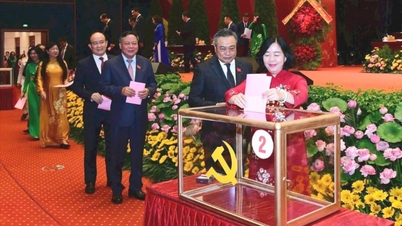

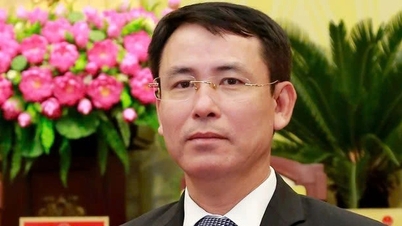




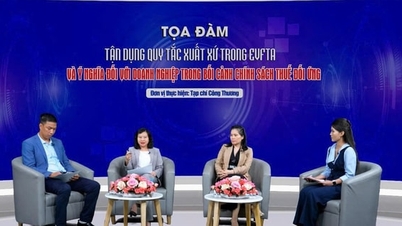








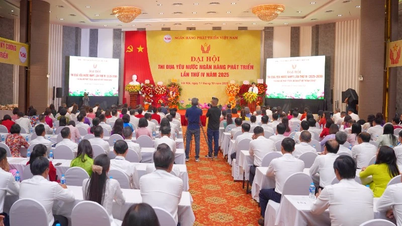












![[Photo] Nhan Dan Newspaper launches “Fatherland in the Heart: The Concert Film”](https://vphoto.vietnam.vn/thumb/1200x675/vietnam/resource/IMAGE/2025/10/16/1760622132545_thiet-ke-chua-co-ten-36-png.webp)




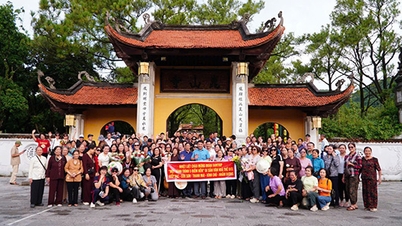


















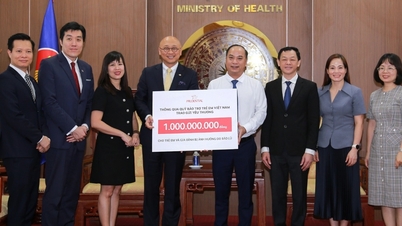














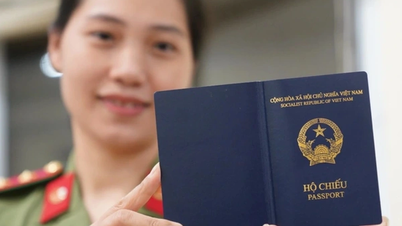



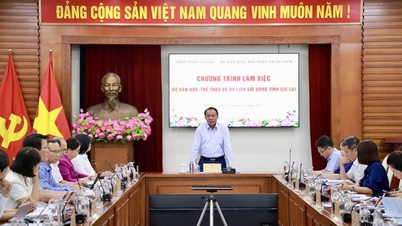
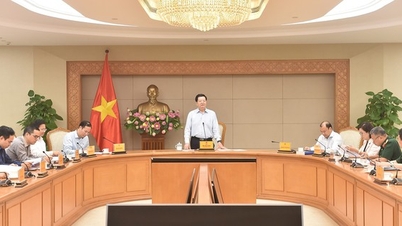
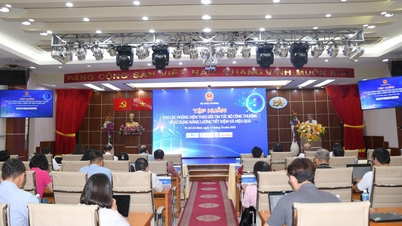


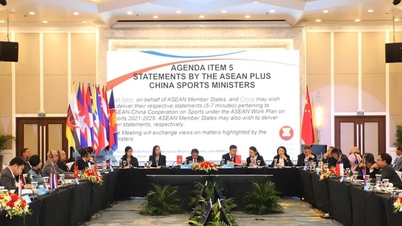
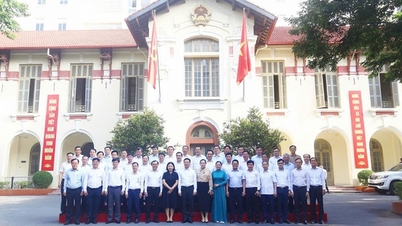

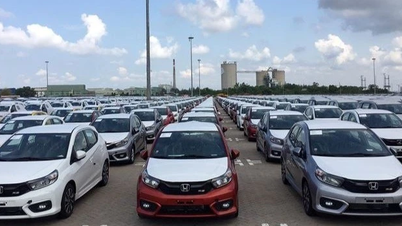






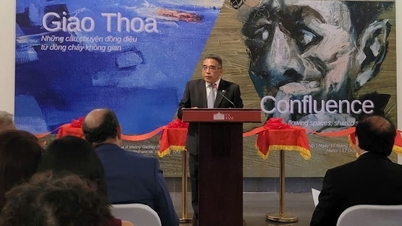
















Comment (0)